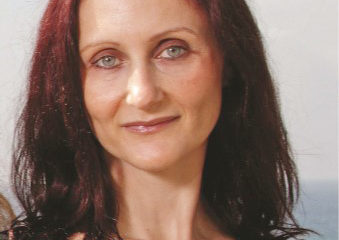
Israel

Israel can’t get a fair shake at the UN
Published
2 years agoon
By
Steven GruzdThe latest Israel-bashing session at the United Nations Human Rights Council (UNHRC) has commenced in Geneva. Meanwhile, more than 10 000 people have signed a petition calling for South Africa’s Dr Navi Pillay – who chairs the commission of enquiry that produced the new report – to be removed due to her long history of strident opinions against Israel.
The commission’s report is riddled with bias. The UNHRC is considering the “Report of the Independent International Commission of Enquiry on the Occupied Palestinian Territory, including East Jerusalem and Israel” in its session that runs from 13 June to 8 July 2022. Can such a UN report ever be independent, fair, and objective, if its chairperson has long ago picked sides?
At a UN Watch workshop in Geneva, South African Christian pro-Israel activist Olga Meshoe Washington said, “My people’s history and experience is being used as an antisemitic tool to politically, morally, and with incredible pretzel-like twisting and legal gymnastics, legally delegitimise Israel in the hope of criminalising her.” Though this report didn’t mention apartheid, critics say the commission is laying the ground for this in future similar reports under its mandate.
Hillel Neuer, the executive director of UN Watch said, “The reason that Hamas and the PA [Palestinian Authority] are enthusiastic supporters of the commission is because they are assured of its outcome.”
At the workshop, Arab-Israeli human-right activist Yoseph Haddad said, “This report, at its core, fundamentally misunderstood the conflict and misattributed every social ill – and I mean every social ill that has an impact on the Palestinians – to Israel.”
Colonel Richard Kemp, the former commander of British forces in Afghanistan said, “It’s a little like Groundhog Day. Hamas triggers a war, the UN convenes a commission to condemn Israel for the war.”
The current 18-page report being considered was authored by Pillay, India’s Miloon Kothari, and Australian Christopher Sidoti. Israel wouldn’t co-operate with the commission, and refused it entry into Israel and the territories. Israel has been down this road many times before, having been badly burned by the Goldstone Report (also having its chief author as a South African) in 2009. Pillay worked on the Goldstone Report. Israel considered it would be damned if it did co-operate, and damned if it didn’t, and chose the latter course. So, the commission visited Jordan and Switzerland instead. Taxpayers’ money well spent?
The report covers what it considers breaches of international humanitarian, human rights, and criminal law by Israel, and builds on multiple previous UN reports condemning the Jewish state. It lists a litany of Israel’s supposed transgressions, including: “an occupation in perpetuity”, “discrimination and geographic, social, and political fragmentation”, “settlements and settler violence”, “forced evictions and displacement”, “attacks on civic space”, “violence against women and girls”, and “a lack of accountability”. Israel’s many detractors will say it deserves everything that the UN throws at it and more.
But make no mistake, the Pillay Report isn’t an impartial investigation into the complex Israeli-Palestinian conflict. The report mentions “Israel” 157 times, but “Hamas” and the “Palestinian Authority” only three times each, and rather uncritically in those mentions. It’s undoubtedly, predictably, and unapologetically one-sided. It concludes that, “What has become a situation of perpetual occupation was cited by Palestinian and Israeli stakeholders to the commission as the one common issue that constitutes the underlying root cause of recurrent tensions, instability, and protraction of conflict in both the Occupied Palestinian Territory, including East Jerusalem, and Israel.”
The UNHRC as a body has been widely criticised for singling out Israel. Agenda item number seven, the “Human rights situation in Palestine and other occupied Arab territories” is discussed at every session. The UNHRC has made an overwhelming number of pronouncements against Israel compared to other human-rights situations the world over since it took over from the equally-discredited UN Human Rights Commission in 2006. It has become a platform for relentless Israel-bashing. President Donald Trump pulled the United States out of the UNHRC in June 2018, citing its extreme anti-Israel bias as one of the chief reasons. It has since rejoined under President Joe Biden, and will sit on the council from 2022 to 2024. South Africa is gunning for a seat from 2023.
In many UN bodies, developing countries hold sway by their sheer numbers. The game is fixed; the odds are stacked against Israel from the get-go. And although Israel has been trying to chip away at this bloc by strengthening ties with African, Asian, and Latin American states, the majority remain pro-Palestinian and opposed to Israel.
A statement condemning the report was signed by 22 countries, including Cameroon, eSwatini, Liberia, and Togo from Africa.
Many on the (now much depleted) Israeli left would concur that the “occupation” is the key problem. I believe that Israel, like every other state, has made mistakes and should be open to proportionate, fair criticism. But this report makes no mention of the spate of recent murders of Israelis or the incitement by the Palestinian leadership of would-be jihadis to commit these terrible crimes. It doesn’t talk about Hamas’ refusal to recognise and make peace with Israel. It doesn’t point out that the PA pays the families of terrorists and suicide bombers. It seems that, sometimes, it takes only one to tango.
In a desperate attempt at balance, it does concede, however, that “Palestinian armed groups launched indiscriminate rocket attacks towards Israeli cities and towns, which killed and injured Israeli civilians and caused significant damage to civilian objects.” It could hardly avoid mentioning this, could it?
The conclusions of the Pillay Report were probably reached before a word was even written. Whatever happens in Geneva, Israel and the Jewish world will weather the storm and live to fight another day.
- Steven Gruzd is an analyst at the South African Institute of International Affairs. He writes in his personal capacity.










